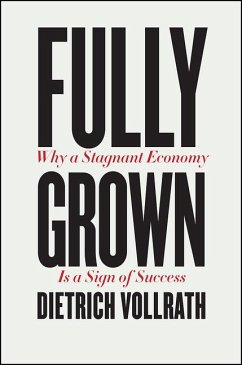"It is widely assumed by economists that growth- an increase in GDP, or the value of our output and expenditure- is essential to thriving, developed economies. The more we produce and consume, the better our living standards, public resources, and employment options. While few would deny that growth is an important measure of economic success, many see it as just one window to a healthy economy. As co-author of a leading undergrad textbook, Dietrich Vollrath is well versed in the factors that contribute to growth and in the reasons it is so exalted. And yet he questions whether a slowdown in growth, like the one currently experienced in the US and elsewhere, is truly and holistically a failure of the economy. Our living standards aren't falling and firms are not failing. Could it be that growth and the factors that contribute to it are not as indicative or influential as we once thought them to be? Indeed, Vollrath argues that the slowdown is a manifestation of our economic success. In Optimal Stagnation, Vollrath focuses largely on the US economy and investigates a number of important trends: a fall in the number of workers relative to the population, the shift from a goods-driven economy to a services-driven one, the slowing in turnover of workers and the slower rate of entry and exit by firms, as well as the decline in geographic mobility. He maps what growth measurement does and doesn't tell us-which factors are rightly correlated with economic success, which ones tell us nothing about significant changes in the economy, and which ones fall into a conspicuously grey area"--








